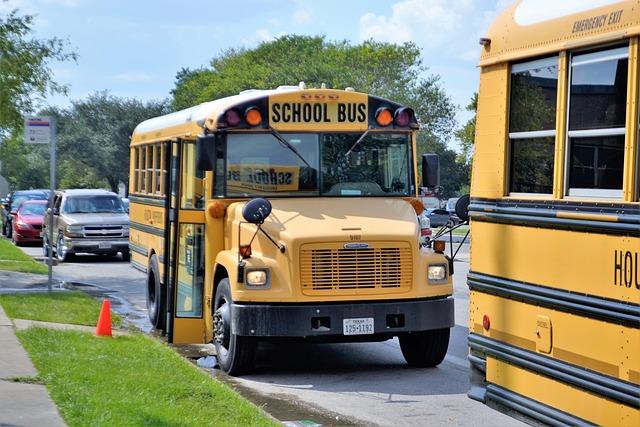Houston ISD Educators Reveal Deep-Seated Trauma and Call for Systemic Change
Teachers in Houston ISD Open Up About Daily Trauma in Schools
At a recent Houston Independent School District (HISD) takeover commission hearing, teachers bravely shared their personal experiences with trauma encountered in their classrooms. These educators described environments fraught with violence, emotional strain, and complex challenges that hinder their ability to provide effective instruction. Their heartfelt testimonies highlighted the pressing need for enhanced institutional support to safeguard the mental health and safety of both students and staff.
Several critical issues surfaced repeatedly during these accounts:
- Safety Risks: Frequent confrontations and threats from students create a pervasive atmosphere of fear among teachers.
- Mental Health Challenges: Elevated levels of anxiety and trauma affect both students and educators, with insufficient access to counseling services exacerbating the problem.
- Insufficient Resources: A shortage of training in trauma-informed educational practices limits teachersŌĆÖ capacity to foster healing and resilience in their classrooms.
| Challenge | Common Incidents | Consequences for Education |
|---|---|---|
| Violence in Classrooms | Regular physical altercations | Interrupted lessons, increased teacher fatigue |
| Mental Health Issues | Rising anxiety and trauma symptoms | Lower student engagement, attendance problems |
| Lack of Support | Minimal trauma-informed training and counseling | Inadequate response to trauma, ongoing distress |
Examining How Trauma Affects Educator Wellbeing and Student Success
During the hearings, HISD teachers provided transparent insights into how trauma impacts their mental health and classroom management. Many reported feelings of emotional depletion and heightened stress, which complicate their efforts to maintain a positive learning atmosphere. The educators stressed the necessity for robust support mechanisms, including expanded counseling availability and specialized training in trauma-sensitive teaching strategies.
Moreover, the testimonies revealed a clear link between teacher wellness and student achievement. Unaddressed trauma not only diminishes instructional quality but also impairs studentsŌĆÖ academic performance and emotional development. In response, the commission is evaluating initiatives designed to cultivate safer, more nurturing school environments. Proposed focus areas include:
- Training educators in trauma-aware instructional methods
- Boosting mental health services accessible on school campuses
- Strengthening partnerships between schools and community organizations
| Area of Concern | Effects Noted | Suggested Remedies |
|---|---|---|
| Teacher Stress | High burnout rates, frequent absences | Support groups focused on trauma resilience |
| Student Conduct | Classroom disruptions, disengagement | Social-emotional learning curricula |
| Academic Achievement | Declining grades, increased dropout risk | Customized tutoring and counseling services |
Specialists Advocate for Integrated Trauma Support in Schools
At the commission hearing, mental health professionals and educators alike stressed the importance of a unified, comprehensive approach to trauma care within HISD. They argued that piecemeal interventions fail to meet the multifaceted emotional needs of students affected by trauma. Essential components of an effective system include accessible counseling, trauma-informed teacher training, and sustained engagement with families and community partners.
Experts also recommended forming multidisciplinary teams to coordinate timely support and ensure no studentŌĆÖs needs go unmet. Emphasizing early identification and personalized intervention, the following key support strategies were proposed:
| Support Strategy | Objective | Anticipated Benefits |
|---|---|---|
| Teacher Education | Enhance trauma awareness and response skills | Better classroom dynamics and student rapport |
| On-Site Counseling | Deliver immediate emotional support and therapy | Fewer behavioral issues and improved attendance |
| Family Involvement | Strengthen collaboration between home and school | Enhanced student resilience and support systems |
| Community Collaboration | Utilize local expertise and resources | Broader program reach and long-term sustainability |
Urgent Calls for Policy Enhancements: Prioritizing Mental Health and Trauma Training
Throughout the commission hearings, HISD educators highlighted critical deficiencies in the districtŌĆÖs current mental health infrastructure. Teachers described how the scarcity of counseling resources hampers their ability to manage trauma-related behaviors effectively, often resulting in tense and unproductive classroom settings. These accounts emphasized the necessity for proactive, school-based mental health services rather than relying solely on disciplinary actions.
Advocates strongly recommended mandatory trauma-informed professional development to empower teachers with practical strategies for identifying and addressing trauma symptoms in students. Key proposals included:
- Ongoing workshops focused on mental health literacy and trauma awareness
- Collaborative planning between educators and mental health experts to design individualized support plans
- Implementation of comprehensive mental wellness initiatives across all schools
Below is a comparison illustrating the current state of mental health resources versus the proposed enhancements:
| Resource Category | Current Level | Target Improvement |
|---|---|---|
| Student-to-Counselor Ratio | 1:400 | 1:250 |
| Annual Trauma Training Hours | 2 hours | 12 hours |
| Mental Health Program Funding | $150,000 | $500,000 |
Conclusion: Prioritizing Trauma-Informed Reforms for a Healthier HISD
As the takeover commission continues to collect input, the candid revelations from Houston ISD teachers underscore the significant obstacles educators face daily. These narratives illuminate the critical need for systemic reforms and comprehensive support structures to address the trauma impacting both staff and students. With the commissionŌĆÖs recommendations forthcoming, the districtŌĆÖs future leadership and policy direction will be pivotal in shaping a safer, more supportive educational environment for all.




